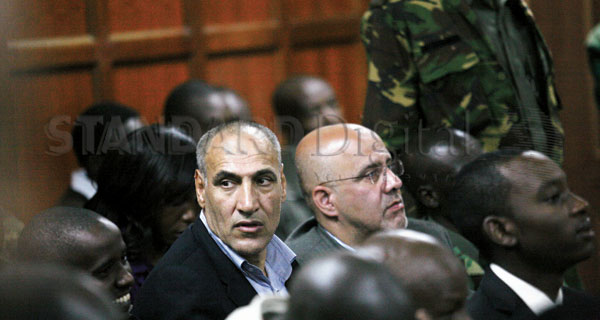×
The Standard e-Paper
Join Thousands Daily
 |
| Iranians Sayed Mansour Mousavi (left) and Ahmed Abolfathi Mohammed at the Nairobi Law Courts when they were found guilty of possessing explosives and planning to carry out bombings in Kenya. [PHOTO: EVANS HABIL/STANDARD] |
By STANDARD ON SATURDAY TEAM